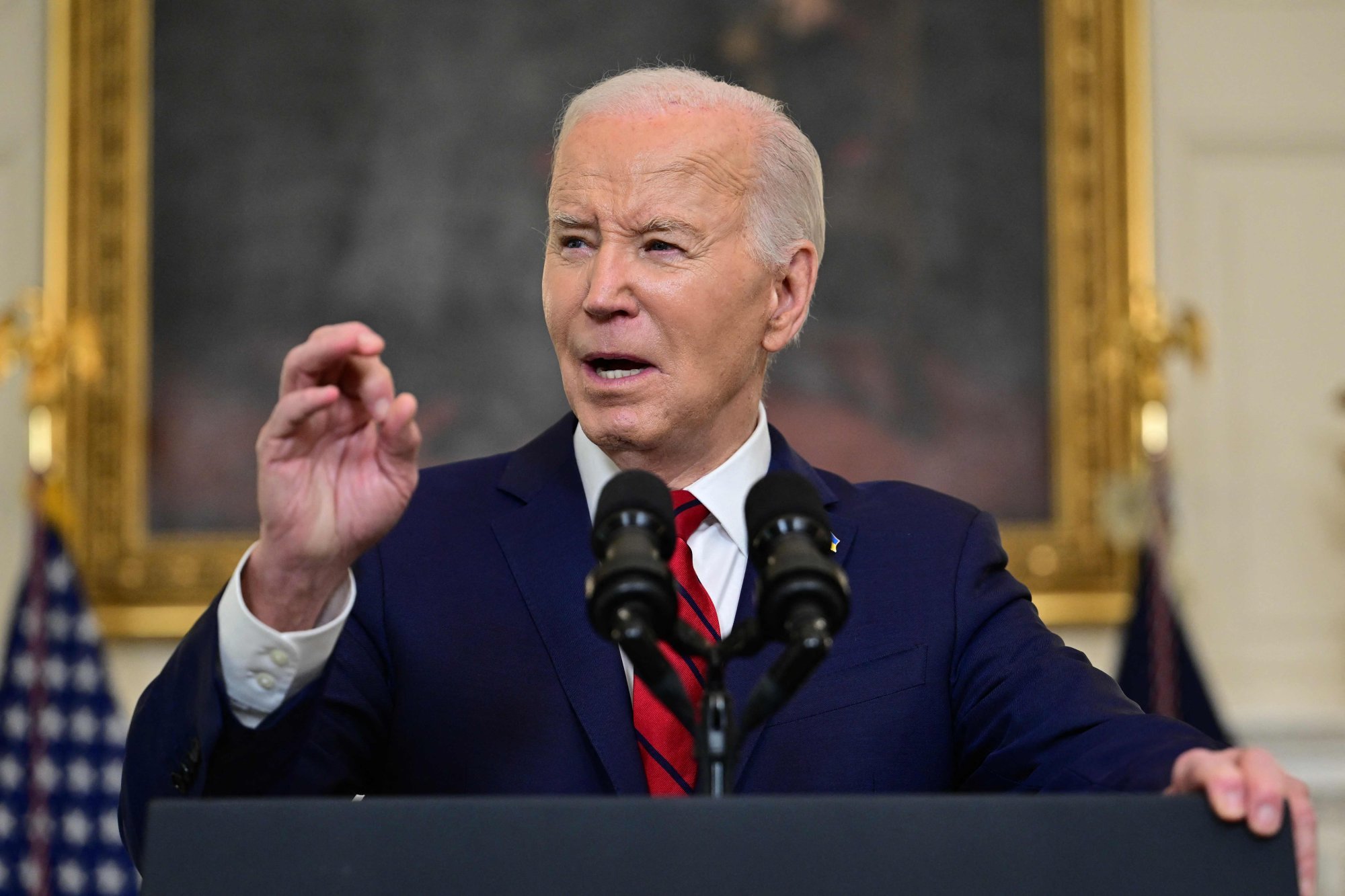TikTok and its Chinese parent company ByteDance filed a federal lawsuit on Tuesday seeking to block a US law that would force the divestiture of the popular short-video app or ban its use nationwide.
The companies filed the suit in the US Court of Appeals for the District of Columbia arguing that the law violates the First Amendment of the US Constitution, which protects free speech, as well as several other constitutional provisions.
The law, signed by US President Joe Biden last month, gives ByteDance until January 19 to sell TikTok or face a ban – with a three-month extension possible if ByteDance is determined to be making progress towards a sale.
Do you have questions about the biggest topics and trends from around the world? Get the answers with SCMP Knowledge, our new platform of curated content with explainers, FAQs, analyses and infographics brought to you by our award-winning team.
Today we filed a petition in federal court seeking to overturn the unconstitutional TikTok ban. Read our petition here: https://t.co/Lx3l4DaRTG
— TikTok Policy (@TikTokPolicy) May 7, 2024
A proposal to force a sale of the app within six months passed speedily through the House of Representatives in March before it stalled in the Senate. But a version of that bill extending the divestiture time frame was attached to a larger foreign policy bill that Biden signed into law.
The lawsuit argued that a divestiture “is simply not possible: not commercially, not technologically, not legally”.
It specified that the Chinese government “has made clear that it would not permit a divestment of the recommendation engine that is a key to the success of TikTok in the United States”.
China’s Ministry of Commerce has repeatedly signalled that it would oppose a forced sale. In 2020, Beijing updated its rules governing exports to include technology similar to the algorithm that TikTok employs to recommend content to its users.
US lawmakers, citing China’s national security laws, have expressed concern about TikTok’s potential to monitor and manipulate Americans through modifying its algorithm and transmitting citizens’ personal data to Beijing – concerns that TikTok has decried as unsupported by evidence.
Still, TikTok, in response to those critiques, had tried to negotiate a plan to safeguard US user data with the Committee on Foreign Investment in the United States (CFIUS), the Treasury-led inter-agency group in charge of reviewing national security implications of foreign investments.
Our response to the TikTok Ban Bill in the US: https://t.co/LpoE67sxHo
— TikTokComms (@TikTokComms) April 24, 2024
In their lawsuit, TikTok and ByteDance said they had spent over US$2 billion to enact measures to protect US user data and made additional commitments in a 90-page draft national security agreement developed with CFIUS.
That agreement, according to the suit, included a “shut-down option” that would give the federal government the authority to suspend TikTok in the US if it violated certain obligations.
“[We] have demonstrated a commitment to addressing ... concerns without the need to resort to the drastic, unconstitutional step of shuttering one of the most widely used forums for speech in the United States,” the companies said, citing the 170 million Americans who use the app.
But CFIUS, according to the suit, stopped meaningful engagements with TikTok in August 2022. In March 2023, the inter-agency group “insisted that ByteDance would be required to divest the US TikTok business”.
TikTok has won legal victories against earlier attempts to ban the app in the US. In December, a federal judge blocked Montana’s first-of-its-kind statewide ban of TikTok on free speech grounds. Federal courts also blocked a 2020 executive order by then-president Donald Trump to force ByteDance to sell TikTok or face a ban.

In addition to First Amendment grounds, the companies emphasised in their filing three other constitutional violations of the forced sale, including due process and private property rights enshrined in the Fifth Amendment.
They also highlighted other logistical barriers even if China were to approve a sale.
Moving the TikTok source code to the United States “would take years for an entirely new set of engineers to gain sufficient familiarity”, according to the lawsuit.
The companies also argued that a stand-alone US TikTok platform would not be commercially viable, since it would be removed from the rest of the globally integrated platform.
The US TikTok platform would “become an ‘island’ where Americans would have an experience detached from the rest of the global platform and its over 1 billion users”, the lawsuit said.
On Tuesday, Representative John Moolenaar, Republican of Michigan and chair of the House select committee on China, said he was “confident” the legislation would be upheld.
“It is telling that TikTok would rather spend its time, money, and effort fighting in court than solving the problem by breaking up with the [Chinese Communist Party],” he added.
The battle over TikTok is a significant front in the technological competition between China and the US.
Last month, Apple said that Beijing had ordered it to remove Meta Platforms’ WhatsApp and Threads from its mainland China App Store. Those apps were already blocked by China’s “Great Firewall” though users had circumvented restrictions using virtual private networks.
More from South China Morning Post:
- Potential TikTok ban threatens the US business of China’s cross-border sellers and the global ambitions of ByteDance
- What makes TikTok’s technology so special, that the app may be banned in the US?
- These are the places where Chinese-owned TikTok is already banned
- TikTok owner ByteDance earns praise from Chinese social media for rejecting US sell-or-ban ultimatum
- TikTok ban: ByteDance would rather shut app down than sell, insiders say
For the latest news from the South China Morning Post download our mobile app. Copyright 2024.





